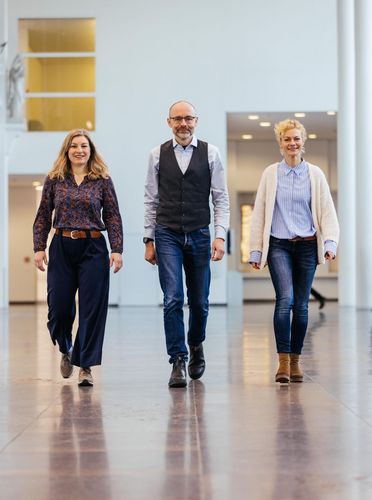Mr Liermann, how did the OEH come into being?
Dr Reiko Liermann: The Office of the Vice-Rector for Excellence Development had the idea of setting up what it calls an “Office Excellence Hub” back in summer 2022. This was prompted by a letter from the Saxon State Ministry of Science, Culture and Tourism (SMWK) in which Leipzig University was asked, among other things, to name accompanying measures to strengthen Cluster of Excellence initiatives. The external Sounding Board, an advisory body to the Rectorate, later took up this need at its spring meeting in 2023 and expressly recommended its implementation. The Office of the Vice-Rector for Excellence Development was then tasked with completing the establishment of the OEH by the end of 2023. We would like to thank all the people and organisations involved for making it possible to set up the OEH so quickly.
Dr Füldner, what are the tasks entrusted to the OEH?
Dr Christiane Füldner: We support the Rectorate in its implementation of the Excellence Strategy and are tied to the Vice-Rectorate for Excellence Development, enabling us to fulfil several intermediary functions. We provide advice and support for the Cluster of Excellence proposals and play a key role in managing the application process. At the same time, we are directly involved in writing parts of the proposals. In close consultation with the external Sounding Board, an advisory body to the Rectorate, we are also developing our approach to applying for the DFG university allowance. Last but not least, we see ourselves as a service team for all those involved in shaping the Excellence Strategy and the profiling process.





























































